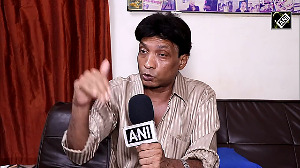Besides regular buyers, there is lot of interest among those in essential services, such as health, banking, and IT. The sales will be helped by social distancing becoming the new normal in both urban and rural regions as people will be averse to using public transport.

Two-wheeler makers expect to benefit from personal transportation needs arising out of the COVID crisis, despite the rising number of cases.
They, however, remain cautious given the regulated operations at dealerships and factories.
Top executives at two-wheeler makers said they have seen an encouraging response, with a steady increase in inquiries and sales.
Y S Guleria, senior vice-president (sales and marketing), Honda Motorcycle and Scooter India (HMSI), said: “Close to 40 per cent of those who inquired about our products in the last one month were keen on the purchase.”
The second-largest two-wheeler maker by sales has retailed 10,000-plus units from its 1,200 sales touch points in a week, after the lockdown was eased, said Guleria, adding that the opening would be staggered.
HMSI has a total of 6,200 touch points, including service centres. Besides regular buyers, there is lot of interest among those in essential services, such as health, banking, and IT, he said.
Guleria added that HMSI had worked out an attractive finance package, based on lower down-payments, to make the purchase more attractive.
It will be launched across its sales points very soon.
He doesn’t see firms offering discounts or freebies to lure buyers.
On Sunday, Hero MotoCorp, the market leader, said it had commenced its retail operations with the re-opening of more than 1,500 customer touch-points, including authorised dealerships and service centres.
These outlets contribute to 30 per cent of its total domestic retail sales.
In a stock exchange filing on Sunday, it said that 10,000 units of motorcycles and scooters had been sold since the re-opening of these touch points.
Pune based Bajaj Auto on Monday said it has commenced re-opening of its dealerships.
The company did not disclose the number of operational touch points or initial sales response.
“India is gearing up for the new normal post the COVID19 pandemic and so are we at Bajaj Auto.
"The opening of workshops and dealerships is another step towards making a fresh start.
"To ensure safety, speed and efficiency with minimal contact, a new workflow processes has been put in place for both Sales & Service,” said Rakesh Sharma, executive director, Bajaj Auto in a statement.
Meanwhile, an uncertainty on whether they will be able to open the outlets the next day amid raging number of cases, have kept them on toes, said dealers.
Auto dealerships have resumed operations in select regions in line with the protocols and standard operating procedure laid by the manufacturers.
“While we are all for resuming business, it is coming at a huge cost,” said Nikunj Sanghi, managing director at JS Four Wheels, an Alwar based dealership for Hero MotoCorp and Mahindra and Mahindra.
In the last one week, his dealership has spent Rs 23,000 just on sanitization.
“If tomorrow, the authorities decide to shutter the outlets due to spike in number of COVID-19 cases, all this expenditure goes in vain as we have to do all this all over again.”
Both inquiries and actual sales is less than 20 per cent of the normal sales.
There is fear in staff and customers and an uncertainty about the next day.
“We will have to live with Corona. Even if there is a risk of infection, we have to take it. It’s just that we need to take all precautions,” said Sanghi.
Mitul Shah, vice president at Reliance Securities said the wheeler segment would be the first one to recover within auto space attributing it to the high exposure it has to rural India.
“Rural markets have witnessed lower impact of COVID19, while healthy Rabi output has kept its economy going,” he said.
The sales will also be helped by the social distancing becoming the new normal in both urban and rural regions as people will be averse to using public transport.
Shah however, cautioned recovery would take few months due to ongoing uncertainty and COVID led disruption.
Photograph: Amit Dave/Reuters












 © 2024 Rediff.com -
© 2024 Rediff.com -